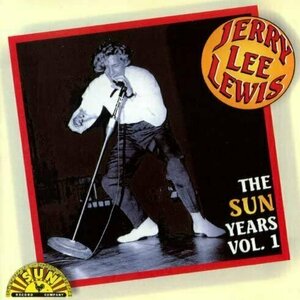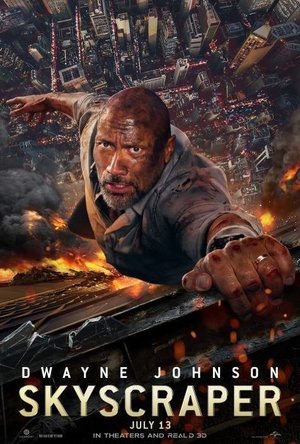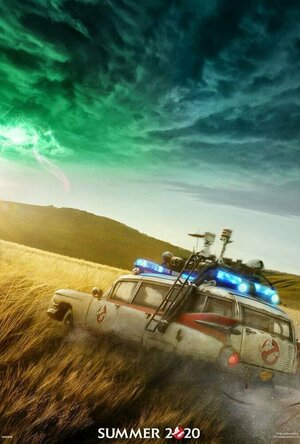Kurt Vile recommended The Sun Years by Jerry Lee Lewis in Music (curated)

VR Hollywood Blvd by Car Virtual Reality 360
Entertainment and Travel
App
Nice VR experience and beautiful memories if you already were there or if not, gain experience as if...
Daniel Boyd (1066 KP) rated American Idiot by Green Day in Music
Nov 2, 2017
Lee (2222 KP) rated Skyscraper (2018) in Movies
Jul 13, 2018
The movie opens 10 years ago, with FBI agent Will Sawyer (Johnson) and his team attending a domestic hostage situation which goes badly wrong. Back in the present, Will is now an amputee and married to the military nurse that cared for him during that incident (Neve Campbell). They've got 2 young kids and the whole family is in Hong Kong where Will has been hired as security consultant for The Pearl, a new state-of-the-art skyscraper and the tallest building in the world. A news reel montage fires off lots of impressive facts and figures about the building, hardly giving you time to digest or even question them. Let's just say, it cost billions of dollars, looks incredibly futuristic (and a bit silly) and is a scientific wonder of the world. Before The Pearl opens up its doors for people to live and work in though, Will needs to sign off on fire safety and security.
We're shown Will putting on his false leg, letting us know how that all works in preparation for later scenes in the movie. Will then fixes his wife's phone before he rushes out of the door and ushers a line so obviously important to the movie it's actually annoyingly distracting. So important is this piece of information, he actually uses two variations of it within minutes of each other too - "Remember, you can fix 90% of problems by just turning it off and on again...". Like I say, just disengage your brain, don't worry about it, and you'll be fine.
If you've seen the trailer, you'll have gathered that Wills family are the only residents in The Pearl, with the buildings owner and his team way up top in the penthouse. You'll have gathered that this is attempting to be a Die Hard / Towering Inferno crossover, and that there are bad guys involved. You'll no doubt have also seen the famous leap from a crane by Dwayne Johnsons character into the burning skyscraper. This is where the movie really kicks into action.
Now, I was watching this in 3D, so I'm not sure if it will have quite the same effect on a TV screen at home, but I was literally on the edge of my seat whenever Will was either dangling or jumping 96 floors in the air (which is a lot), while a Hong Kong crowd gasps and cheers on the streets below. The action and peril is relentless, repeatedly moving Will and his family from one dangerous set piece to another. While not quite as funny or charming as he is in his other movies, Skyscraper is still all about Dwayne Johnson though, and all other characters come out of this pretty short changed. Neve Campbell gets a couple of chances to kick some ass, but otherwise she's pretty underused. The bad guys aren't particularly effective, or memorable, neither are the police team down on the ground.
It's predictable and it's ridiculous. But I absolutely loved it.

Guitarism - Pocket Guitar
Music and Entertainment
App
Over a million downloads. 9,000+ user reviews. 4.5 star avg rating. Get it now! "My guitarist...
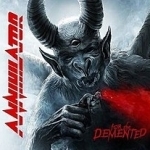
For the Demented by Annihilator
Album Watch
Annihilator’s brand-new album “For The demented” promises to pack a premier punch....
Metal

Sally's Spa
Games and Entertainment
App
■ ■ ■ ■ ■ Sally's Spa™ 30% OFF! Limited Time ■ ■ ■ ■ ■ ■ ■ ■ ■ ■ ...

Sally's Spa HD
Games and Entertainment
App
■ ■ ■ ■ ■ Sally's Spa HD™ 30% OFF! Limited Time ■ ■ ■ ■ ■ Why wait? Relax &...
BankofMarquis (1832 KP) rated Ghostbusters: Afterlife (2021) in Movies
Nov 24, 2021
GHOSTBUSTERS:AFTERLIFE does and is, in my opinion, the true successor to this all-time great film. This is because Afterlife is nothing more than what it pretends to be - a 2 hour homage to the first film and, most importantly, a wonderful tribute and send off to the late Harold Ramis while creating a whole new “Ghostbusters” Universe and characters along the way.
The plot is fairly simple, the daughter and 2 grandchildren of Original Ghostbuster Egon Spengler (Ramis) arrive at his remote farm after his passing, They start discovering old Ghostbusters equipment (including the Ecto-1) and strange Supernatural events begin to occur.
So…who ya’ gonna call?
This film is lovingly created and produced by Writer/Director Jason Reitman (son of original Ghostbuster Director Ivan Reitman) and it succeeds not because it reveres the first film, but because it loves and respects it and leans into whenever it needs to while also becoming its’ own animal.
Nothing shows this more than the performances in this film. Previous attempts at revising this series tried to hard to regenerate the unique chemistry of the original Ghostbusters. This film realizes that was a mistake and lets these characters do their own things in their own way.
Paul Rudd and Carrie Coon are very good - if somewhat restrained - as the “adults” in this film, but it is the kids - that shine. Finn Wolfhard (STRANGER THINGS, IT) is rock solid as Trevor - one of Spengler’s Grandkids while Logan Kim as “Podcast” one of their friends is also fun and interesting.
But, it is the performance of McKenna Grace (THE HANDMAID’S TALE) as Phoebe, the Granddaughter most like the Grandfather, that really catches your attention and holds this film together in a way that is remarkable for one so young. She really is the secret weapon in this film.
And, of course, there are some fun cameos - cameos that would be spoilery if mentioned, but you can probably guess.
Reitman keeps the action moving along at a fine clip - though the first hour does drag out a bit - and the CGI is much improved since 1984, so that helps things out here as well.
More than a nostalgia play, GHOSTBUSTERS:AFTERLIFE is a fun romp that will be enjoyed by those who know (and love) the original as well as those who are coming to it for the first time.
Oh…and make sure you stay for the 2 End Credits scene - one comes about 2 minutes in and the other is right at the end, they are both worth staying for.
Letter Grade: A-
8 stars (out of 10) and you can take that to the Bank(ofMarquis)
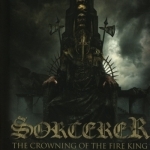
The Crowning of the Fire King by Sorcerer
Album Watch
Sorcerer was formed in Stockholm, Sweden in 1988 by Johnny Hagel (Tiamat, Sundown, Lithium), Tommy...
metal
